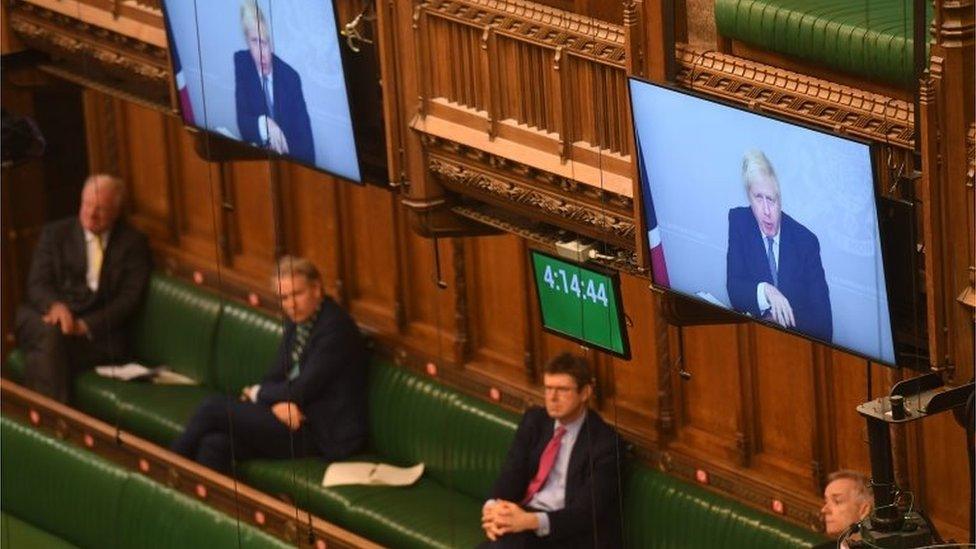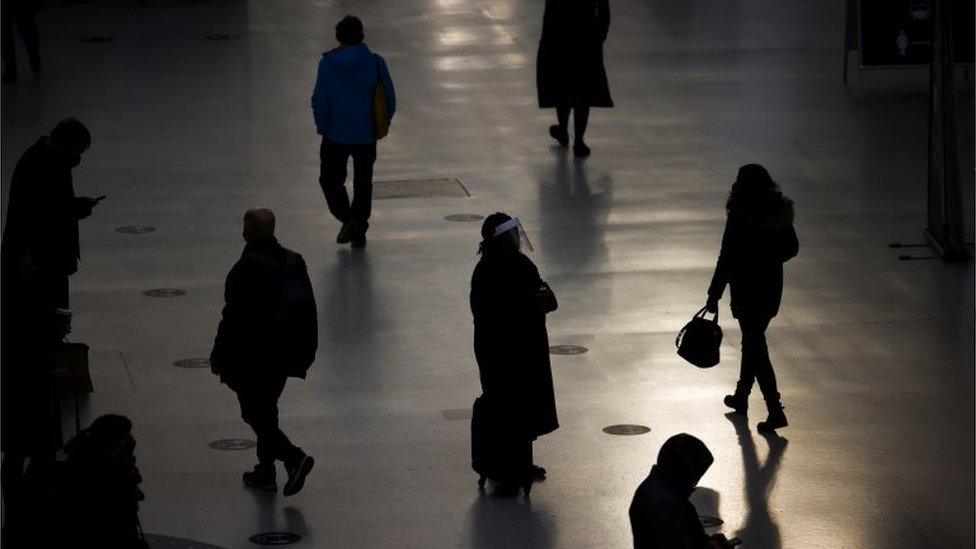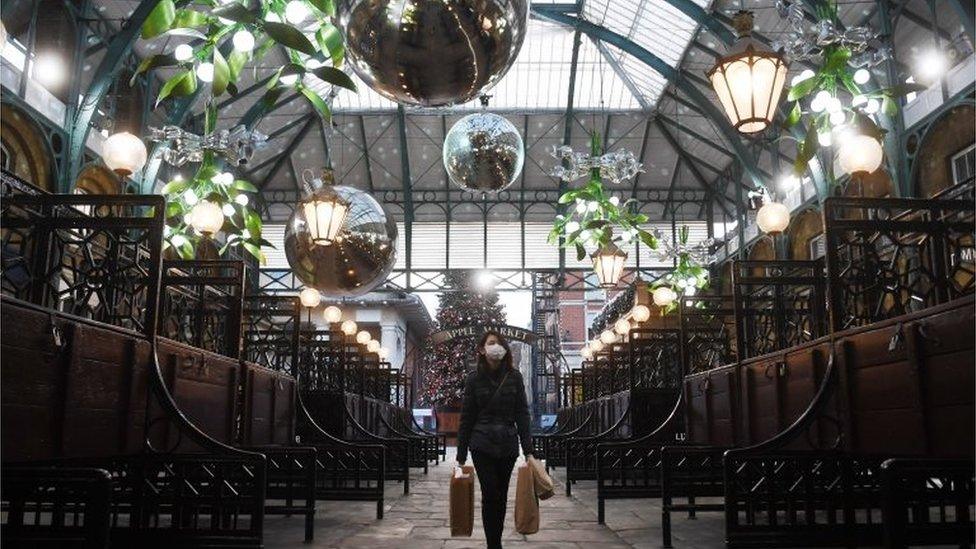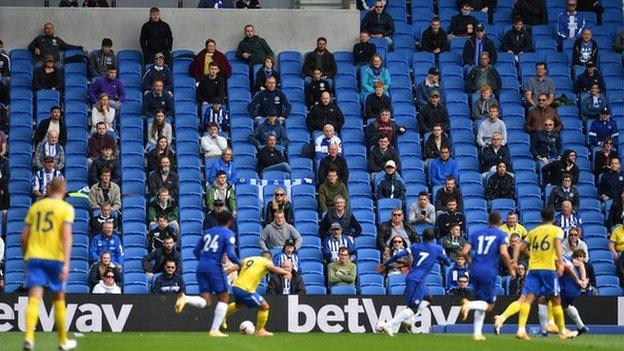Covid-19: Boris Johnson faces political test over new tier system
- Published

Boris Johnson set out plans for a new three-tier system of Covid restrictions to MPs via video link
Back to the future. Next week England will return to the tier system, where the country is carved up into different categories.
Areas where there are higher levels of coronavirus will be under tighter restrictions. Parts of the country where it is less prevalent will have looser limits.
It is the same model that didn't do enough to slow the winter surge of the disease last time. But second time round, it's different in some important ways.
First off, the strictest regime, tier three, will overall be tougher than the last time round.
Swathes of the country are still going to stuck under a pretty restrictive system. (You can read all about exactly how the tiers will work here.)
Second, gyms and businesses that carry out personal care like hairdressers will stay open everywhere. Stricter yes, but way short of a rerun of the spring lockdown.
Third, the decision on which set of instructions a region will have to follow will be taken by the government and its scientists centrally.
For all of the warm words about the importance of local leaders, and local authorities, there is no desire in central government to repeat the very messy political process of trying to get regional buy-in when decisions are being made about moving in and out of the different categories.
That might be a more straightforward way of making the choices. But it could make it harder to get local support for measures being taken.
Although it's worth noting the chancellor has already changed his mind about extending national financial support which was such a bone of contention last time.
And in theory, areas could move more quickly in and out of the different tiers too - with possible switches every fortnight.

Commuters maintaining social distance at Waterloo station, London
First time round the government struggled to communicate how the system would work cleanly, but this is going to be the way things are run until March so ministers want to get it right.
But the political test of how bumpy it could be won't come until Thursday when ministers reveal the answer to the question every MP and member of the public wants to know - what will the rules be in the place they live.
The Tory backbenches and the opposition this time are more demanding of the government in terms of explaining its decision-making.
But the extent of the potential push back will depend to a large extent on just how much of the country is asked to keep coping largely behind closed doors.
Downing Street has repeatedly made it clear that more of England will be in the toughest tier than in the first phase of this system, but won't be drawn yet beyond that.
The prime minister's wi-fi might have held up through his press conference on Monday, unlike the House of Commons earlier (although the PM protested the problems were on the Commons' end) but it's not clear yet how his arguments for the revised tier system will hold up too.
And don't forget the relative success of the new system depends in large part on all of us - how the public responds to the new system of rules and regulations, and how patient we are all willing to be.

P.s. Remember all four parts of the UK are following different approaches right now. Northern Ireland is about to tighten up further. Wales has not long left its circuit break lockdown, and Scotland has a new system of five tiers.
That patchwork is partly why it is 'possible, but not definite', according to government insiders tonight that the four parts of the country will agree how to manage Christmas on Tuesday.
The four administrations have been trying to figure out a way of allowing a bit more flexibility around families spending time with each other at Christmas.
But there are considerations around how long it should be, how to manage transport, how many households it should include, even what really constitutes a household.
There doesn't seem any doubt that an agreement will be reached. It seems (for once perhaps?) the delay is because of the complexities not a conflict.
Conversations continue, and there should be a deal of some sort before too long.
- Published1 July 2022

- Published14 July 2021

- Published23 November 2020

- Attribution
- Published23 November 2020

